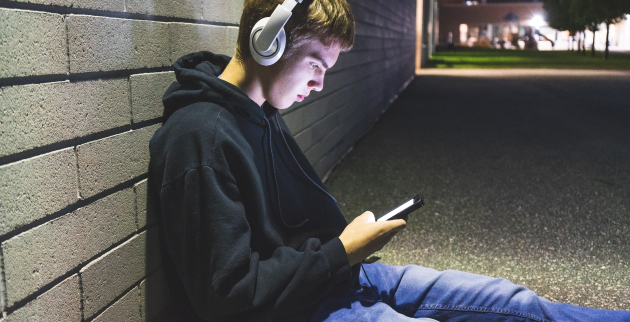Fake news and misinformation

Sharing news and stories with our friends on social media and via messaging is fun. But there are risks.
Made-up stories and false news reports being shared online have caused serious problems, and got young people into a lot of trouble.
This is sometimes called false news, fake news, misinformation, disinformation, or hoaxes.
Take Action: Reporting misinformation or fake news online is always a good idea, for example, by clicking on 'I don't want to see this' or reporting to the platform. If you see something online and need to take more action, you can report harmful content online.
How to spot fake news
Some fake news can look very convincing, particularly as it is easy to produce images and text using AI. But most of the time you don't need to spend much time figuring out if something is true or fake.
Here are some questions to ask yourself when reading content online:
- Is this something I need to read about?
- Is this story trying to grab my attention or shock me?
- Is this story being reported by multiple reliable sources?
Online content often mixes up entertainment, fact, and other content. This can make it harder to do things like research for homework, find out about a town you are moving to, or look for services or support near you.
Here are some questions to ask yourself when looking at content online:
- Does the content including photos or videos look realistic?
- Does it have a recent date, a secure website (https), and a clear way to get in contact?
- Does the writing make sense and follow a logical order?
If you are not sure, ways to investigate include asking a trusted adult or checking with reliable news sources.
Take Action: You will find out more about online reliability at school, but you can also check out online resources such as Fake News - What is it? From BBC Newsround.
Fake news and bullying
It is not OK to deliberately spread fake news or try to make other people believe it, this is harmful and can be illegal. This sometimes happens as part of bullying or trying to upset other people.
If you are not sure about something someone else has told you, it is important to check with a trusted adult.
Fake or real?
Some people don’t want others to read the real news as it contains facts that disagree with their personal viewpoints. Some of them even tell others on social media that the real news is actually fake news.
However, they are just sharing their opinion, and not the facts.
Quiz: Think this seems relatively straightforward? Well, when so many stories are fake it is sometimes hard to identify the real ones! See how well you can do in an online quiz.


